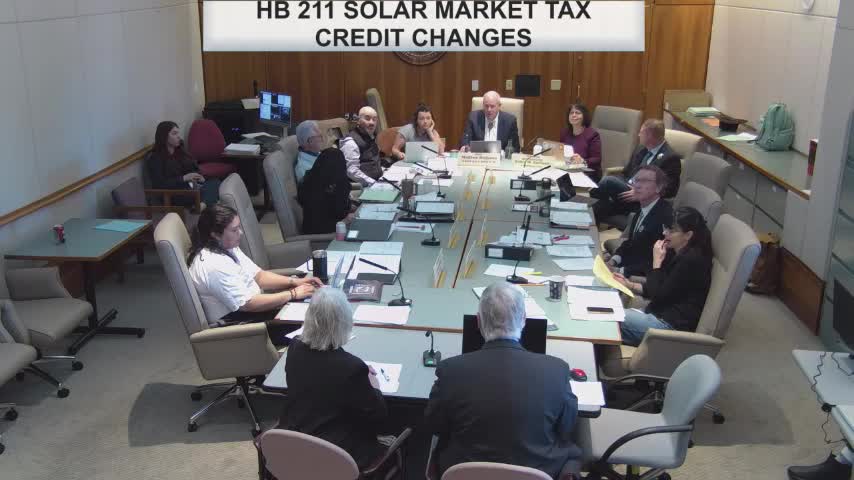Committee advances tax credit to help vulnerable households buy backup generators after wildfire and outage testimony
Get AI-powered insights, summaries, and transcripts
Subscribe
Summary
A proposal to create a refundable tax credit for home backup generation — intended to help households that rely on medical equipment and those in fire‑prone communities — advanced after supporters emphasized life‑safety needs and utilities and tribal governments voiced support.
Representative James D'Antonio introduced House Bill 176, a ten‑year refundable tax credit to help households buy backup generation systems. The sponsor framed the measure as a narrowly targeted public‑safety program for residents who rely on durable medical equipment, home dialysis machines or to preserve food and medications during multi‑day outages triggered by wildfires, storms or public‑safety power shutoffs.
Witnesses included Carlos Lucero of PNM, Carrie Brunder for Lincoln County and Kim LeGantt for the Mescalero Apache Tribe; all three voiced support, telling the committee that some vulnerable residents lost refrigeration and medical continuity during recent outages and wildfires. Lucero said the measure aligned with utility vegetation‑management and emergency‑planning efforts.
Representative D'Antonio described the proposed mechanics in committee: the program would run for 10 years; eligible households would apply for a voucher through the Energy, Minerals and Natural Resources Department; program funding would be capped annually (the sponsor discussed a $5 million annual threshold) and payment would be a partial reimbursement of generator equipment costs. D'Antonio and witnesses discussed typical generator costs — the sponsor used a $10,000 example — and said the program was intended to cover a share (sponsor used a 50% example) of purchase costs for residents who qualify.
Committee members asked about technology neutrality, whether battery systems and solar+storage could qualify, emissions and noise concerns, and whether fuel supply (propane vs. diesel) could create secondary vulnerabilities. The sponsor said the proposal initially emphasized propane and natural gas for reliability and cleaner combustion but welcomed discussions about allowing battery systems and other backup options.
The committee approved the bill (due pass) by voice and roll call; a recorded committee count in the transcript showed unanimous support in attendance (6–0). Several members urged follow‑up to refine eligibility, consumer protections and technical specifications so the credit targets the most vulnerable households and avoids perverse incentives.
Ending: The sponsor and agency representatives said they will return with draft voucher and eligibility procedures and consult with tribes, utilities and emergency managers on program details.
